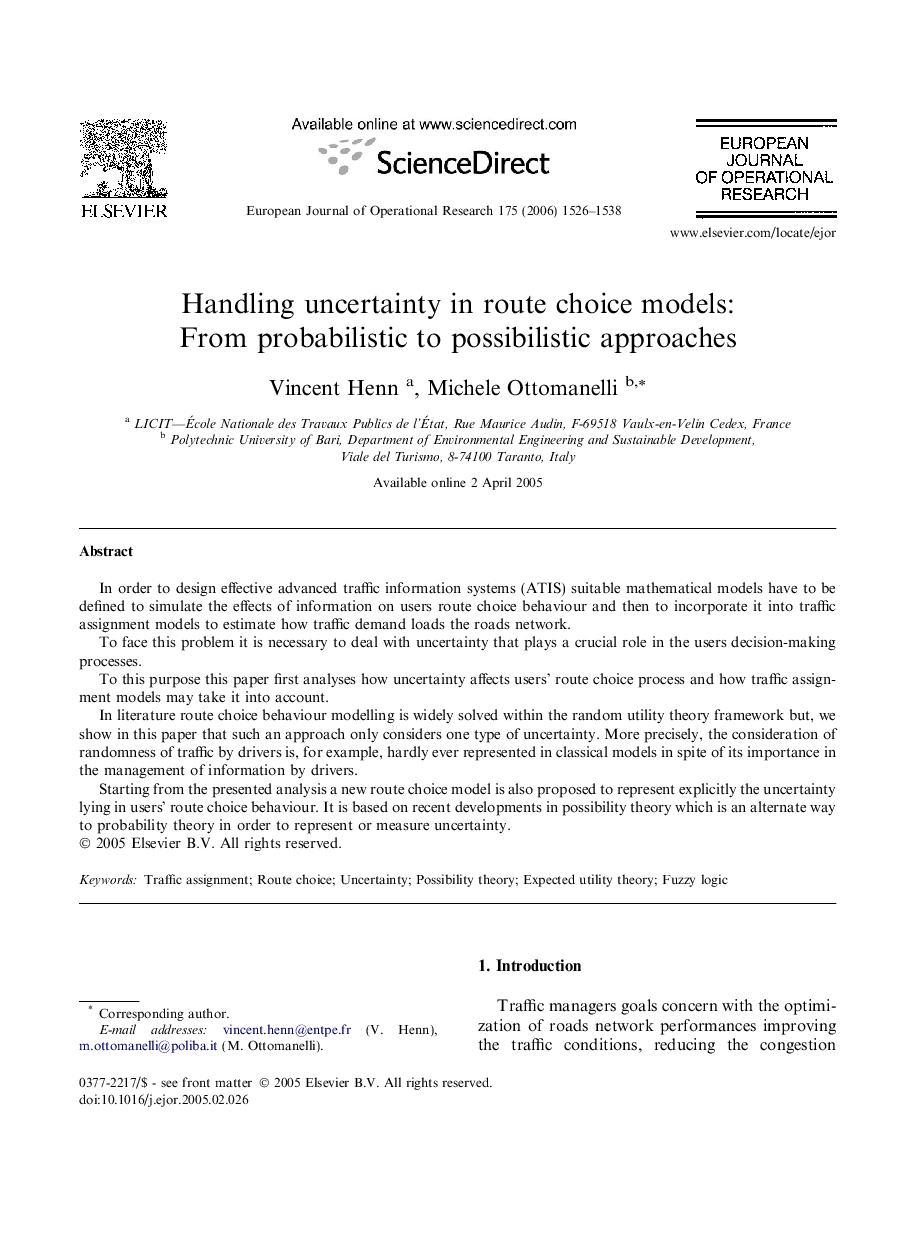| کد مقاله | کد نشریه | سال انتشار | مقاله انگلیسی | نسخه تمام متن |
|---|---|---|---|---|
| 482556 | 1446210 | 2006 | 13 صفحه PDF | دانلود رایگان |

In order to design effective advanced traffic information systems (ATIS) suitable mathematical models have to be defined to simulate the effects of information on users route choice behaviour and then to incorporate it into traffic assignment models to estimate how traffic demand loads the roads network.To face this problem it is necessary to deal with uncertainty that plays a crucial role in the users decision-making processes.To this purpose this paper first analyses how uncertainty affects users’ route choice process and how traffic assignment models may take it into account.In literature route choice behaviour modelling is widely solved within the random utility theory framework but, we show in this paper that such an approach only considers one type of uncertainty. More precisely, the consideration of randomness of traffic by drivers is, for example, hardly ever represented in classical models in spite of its importance in the management of information by drivers.Starting from the presented analysis a new route choice model is also proposed to represent explicitly the uncertainty lying in users’ route choice behaviour. It is based on recent developments in possibility theory which is an alternate way to probability theory in order to represent or measure uncertainty.
Journal: European Journal of Operational Research - Volume 175, Issue 3, 16 December 2006, Pages 1526–1538